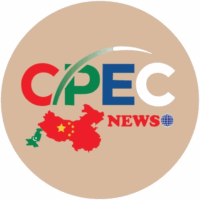By Mian Abrar
Islamabad:China on Wednesday made public its intention to bring under strict scrutiny all projects being implemented vis-à-vis the China-Pakistan Economic Corridor (CPEC) with China’s Anti-corruption watchdog Vice Minister Liu Jianchao saying that strict vigilance would be applied in execution of all the projects of CPEC.
“Corruption is not only a threat to a nation but it is a global hazard which might hamper regional and global peace and development. It is also a peril for national and global financial order which has capacity to take any nation down,” the vice minister told a group of media personnel in an informal exclusive briefing on Tuesday.
Jianchao, who is spearheading a strong anti-graft drive across China as vice minister of the National Bureau of Corruption Prevention, said that no irregularities would be tolerated in the strategic One Road, One Belt project.
He said that China was cooperating with Pakistan to fight corruption and that the two countries may jointly investigate and interrogate if anyone is found involved in malpractices in the CPEC and other economic projects.
“We are going to sign an MoU (Memorandum of Understanding) with the National Accountability Bureau (NAB) to ensure transparency and good governance in China-Pakistan economic cooperation. We have almost finalised the draft and it would be signed this year,” said the minister.
“Since CPEC is the pilot project of the road & belt scheme, China wants to ensure transparency and good governance in the project’s execution. We want to keep CPEC transparent. This is why President Xi Jinping and his team have adopted zero-tolerance policy against corruption. We have brought the most influential people to justice irrespective of their office and influence,” the vice minister said.
“Pakistan is my second home and this is my third visit here this year. I was happy to see smooth implementation of the CPEC. Making CPEC a success is important for China as its success would help implement the One Belt, One Road initiative,” he said.
He said the initiative was aimed at uniting and bridging all the countries besides introducing development, progress and prosperity for the people of the entire region. He said that China had investigated around 230,000 government officials, who were all members of the ruling Communist Party of China (CPC) and almost 95 per cent of those investigated were punished.
“Out of those punished, there were around 150 influential people who were either vice governors or vice ministers. We also took action against those who fled the country. Over 600 people who had fled have been brought back through effective pursuance via Interpol and other anti-crime bodies operating worldwide. We have also launched Skynet 2015 which helped track the fugitive criminals. Still, we have 100 people on Red Notice. Next year, we will launch Skynet 2016 and we will keep working till all corrupt have been tracked down,” he added.
Asked why the US and Canada were not cooperating with China to hand over the fugitive officials of China, Jianchao said the major hurdle was that China had no legal assistance agreement with the US and Canada.
“Despite the fact that we don’t have legal assistance agreement with US or Canada, we are pursuing for the handing over of our fugitives and both the governments are cooperating. We hope to settle the matter amicably,” said the minister.
The minister said that the anti-graft drive had helped establish the writ of law and most of the fugitives were surrendering to the government. He said that his ministry’s most important task was to ensure discipline and transparency in the ruling party – the CPC.
“As director-general of the department of international cooperation for the Central Commission for Discipline Inspection of the CPC, my most important job is to ensure transparency in the ruling party. We have introduced guidelines for punishment in the CPC and law enforcement has been strengthened. Now there is a stronger cooperation and coordination between the various state institutions to bring the culprits to justice,” he added.
He said that inspectors were now paying visits at the provincial and municipality levels and all state institutions – from schools to hospitals – are being monitored on a regular basis.
He said that wherever the inspectors had visited, they had found problems, but that they were committed to punishing all those found involved in corrupt practices.

